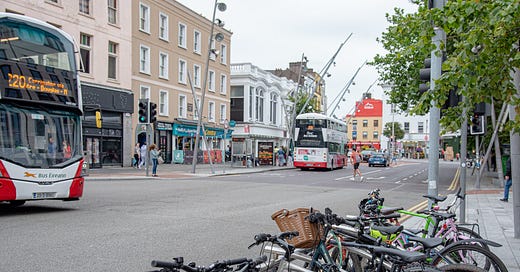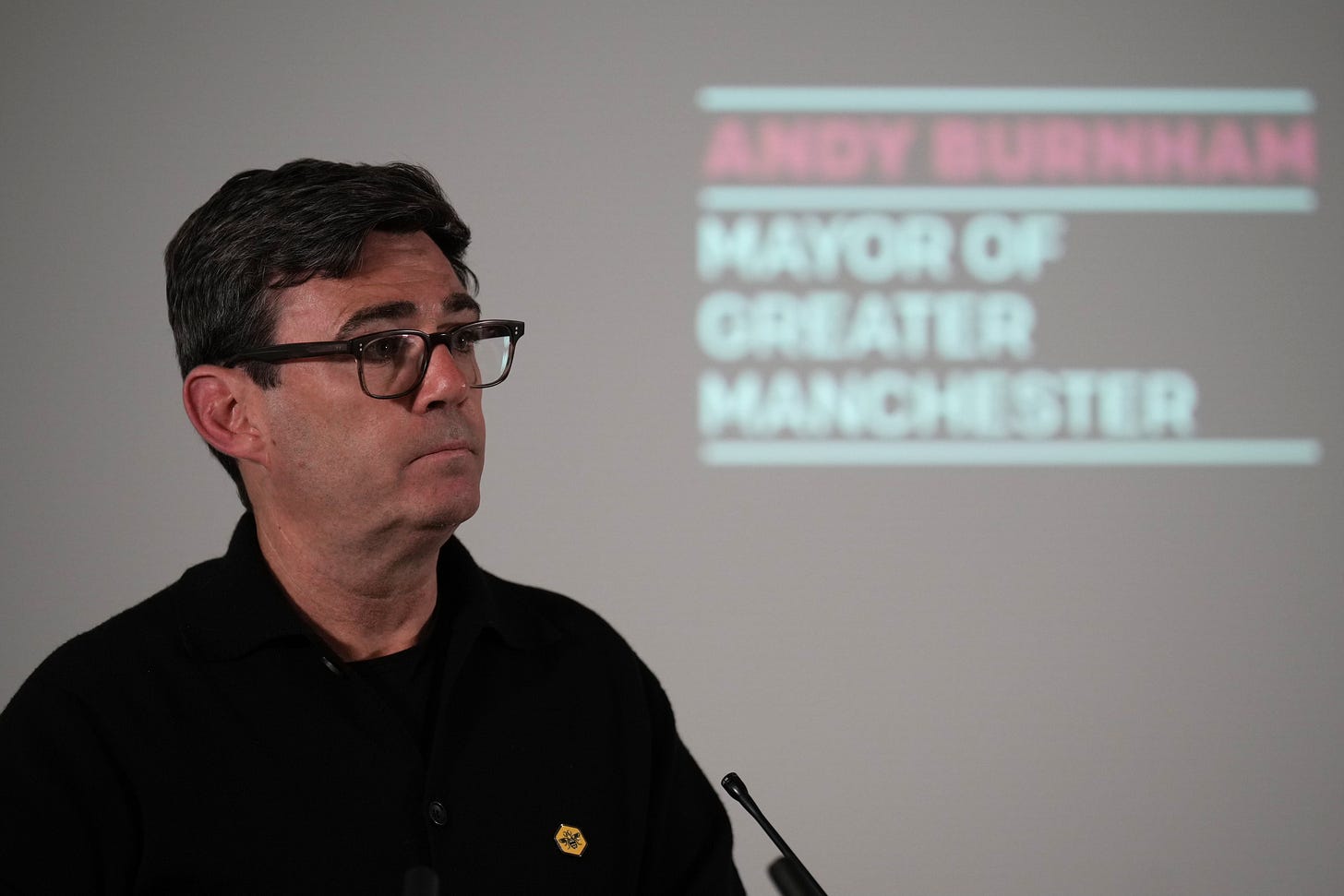Could a directly elected Mayor of Cork get the buses to run on time?
Five years ago, a plebiscite for a directly elected mayor in Cork was rejected by fewer than 1,000 votes. But is there a role for a mayor with the power to get the city's buses to run on time?
When the electorate in Ireland went to the polling stations earlier this summer to vote in the local and European elections, voters in Limerick City had an extra ballot paper: they were being asked to vote for the city’s first directly elected mayor.
In 2019, voters in Cork were asked in a plebiscite whether they wanted a directly elected mayor to run the city, but the motion was narrowly defeated by 983 votes.
Fianna Fáil leader Micheál Martin criticised the Government's handling of the campaign as "shambolic,” saying that a White Paper should have been drafted and presented to the public to ensure voters were fully informed about what they were voting for.
Some of those criticisms resurfaced last week during the December all-Council meeting, in a motion put forward by Oliver Moran (Green Party), which revisited the possibility of a directly elected Mayor for the city.
Judging by the responses from the directly elected councillors in the chamber that evening, the appetite for another plebiscite has largely dissipated, despite broad support from many of the mainstream political parties, including Fine Gael and Simon Coveney, last time around.
If anything, councillors want reform of local government first, before revisiting the question of a directly elected mayor. But could a directly elected mayor actually strengthen the powers of local government?
Looking to Limerick and Manchester
For some Cork City councillors, the position of the newly elected mayor of Limerick serves as a cautionary tale. Indeed, Cllr Terry Shannon said the electorate in Cork were sold a “pig in a poke” last time around, while claiming there’s “mayhem in Limerick” and a “disaster is unfolding” in the city.
The mayhem and disaster, if it exists, appear to be within the political sphere. What councillors in Cork want to know is how much power a directly elected mayor has or would have, and ultimately what they would be able to accomplish at a local level with that power—especially given, as multiple councillors pointed out, that Ireland has one of the weakest forms of local government in Europe.
“The central question that needs to be asked is what devolved powers a directly elected Lord Mayor would have,” Cllr Shannon said.
Could, for instance, a directly elected mayor get the buses to turn up and run on time in Cork?
Cllr Peter Horgan (Labour) asked as much when he pointed out that Andy Burnham, who is serving his second stint as the mayor of Greater Manchester, has the buses under his purview as a directly elected mayor.
“He has now gained back control of the city’s buses,” Cllr Horgan told the City Council meeting, while acknowledging his tenure hasn’t been all “fantastically brilliant and covered in rose bushes.”
“I think if we were to identify one power that a directly elected mayor could take, it’s control of the public transport in this city.
“I don’t like the idea of the NTA (National Transport Authority), as a body, an overarching Dublin-based body, having control on our city’s network and funding.”
Joshi Hermann, the founder of the Mill, a local newspaper for Manchester, told T+D that Burnham has had qualified success when it comes to the public transport system.
“He's using his role to try to link up a pretty disparate and messy system, and brand it all under the "Bee Network" concept.”
“Crucially, he used a special power devolved to Greater Manchester to move from a fully privatised bus system to a franchised one, which is a very popular move because it brings the buses under 'public control' and means local leaders can decide fees and routes. It's too early to say whether that will be a success, but a lot of people are very hopeful about it, including me.”
While Manchester is a far bigger city than Cork, and the two bus systems are not like for like, it comes down to a question of power, or devolved power.
In Limerick, the directly elected mayoral role is by and large a replacement of the un-elected Chief Executive role and the executive functions are largely confined to strategy around a few key areas such as housing, roads, environment and the economy.
Cllr Moran, who tabled the motion, said that while there is a good working relationship between councillors and the executive in Cork, “it’s worth looking at Limerick now to see whether setting what’s effectively an elected Chief Executive in the middle of that is helpful or not.
“One idea mentioned to me that I think is worth exploring is the idea of the metropolitan area of Cork having someone in that position. The Cork Metropolitan Area Transport Strategy is an example of something that could fit under an executive metropolitan mayor, with functions like the National Transport Authority and the operation of public transport devolved to them.”
Wait and see
According to Cllr Kieran McCarthy (Independent), while canvassing earlier this summer, a directly elected mayor was not a talking point that came up on the doorsteps.
That could be, as he suggested, due to a lack of information about what the role entails and what power a directly elected Cork mayor would have.
Cllr Paudie Dineen (Independent) raised similar concerns in his contribution to the debate on the motion, seeking greater clarification around the roles of directly elected mayor and Lord Mayor, and what differences there would be. Currently, the role of the Lord Mayor in Cork is by and large ceremonial.
“I think it’s a pity that there was no report done in 2019 on why the public were confused by this, or what actually went wrong with the vote itself,” Cllr McCarthy said, adding that a public consultation could help shed more light on the 2019 process, as could waiting to see how things work out in Limerick.
“I’m not a believer in running the same question twice, but the unexpected closeness of the plebiscite in Cork last time shows there is an appetite for change,” said Cllr Moran, who tabled the motion.
In the meantime, buses in the city will continue to come and go, and, invariably, not on time
From the archive:
Car-free in Cork: the first week
The move to drastically reduce personalised motor transport in Ireland is underway.






